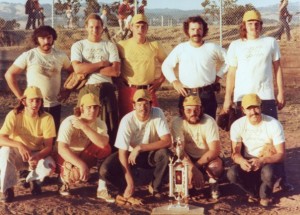Been Down So Long
Chapter Two - Page 2
VRC would like to build 50 to 150 units in Sonoma County, and “we could fill them quite quickly,” he said. In August, local veterans advocates launched a campaign to place 30 homeless veterans a month in stable housing, triple the current placement rate, through the end of 2015.
That effort is colliding with Sonoma County’s apartment rents, among the highest in the state, combined with a minuscule vacancy rate. The ideal solution, a local property manager said, would be construction of more apartments. Sonoma County is “a hard place for veterans to find a roof over their head,” said Chris Bingham, the county’s veterans service officer.
California’s 1.87 million veterans accounted for 5 percent of the state population, while the estimated 16,478 homeless veterans represented 12.6 percent of the homeless population in 2012, according to the Veterans Affairs Department. In Sonoma County, 384 homeless veterans accounted for 8.6 percent of the homeless population.
A county survey in January found 400 homeless veterans and said they represented 11 percent of the adult homeless population. The same survey found homeless veterans were older and experienced more physical, mental and drug abuse problems than other homeless adults. Cameron, who was drafted into the Army in 1965, served a year in Vietnam as a supplies expediter and returned to Sonoma County in 1967. He used GI Bill benefits to get a degree in clinical psychology at Sonoma State University, and started counseling veterans at Oakcrest, the county’s former mental health center.
“I was compelled to mitigate some of the pains of war,” Cameron said. He and other Vietnam veterans and their friends formed the core of about 20 people, all volunteers, who opened Flower of the Dragon’s first office in 1974 in a Montgomery Village storefront given rent-free to the fledgling organization by Hugh Codding, who died in 2010.
In a 1974 interview, Cameron said that Flower offered “rap groups” for disaffected veterans and provided limited mental health, employment and other services to about 200 veterans in the past year. Early fundraisers included a marathon skating contest at a Healdsburg roller rink and concerts by Country Joe McDonald, a Navy veteran and psychedelic rock singer known for his anti-war “Fish Cheer” which morphed into another four-letter word.
 A Flower of the Dragon softball team, which “kicked ass” in a city recreational league, Cameron said, helped a bunch of long-haired Vietnam veterans “get back pride in themselves.” By the late 1970s, Flower had a staff of nearly 40 and a $750,000 budget, drawn primarily — as it is now — from federal grants. The program was recognized as a national model by the Carter administration, and Cameron and others traveled the country to help start similar veterans service nonprofits until 1981, when federal funding went dry under the Reagan administration.
A Flower of the Dragon softball team, which “kicked ass” in a city recreational league, Cameron said, helped a bunch of long-haired Vietnam veterans “get back pride in themselves.” By the late 1970s, Flower had a staff of nearly 40 and a $750,000 budget, drawn primarily — as it is now — from federal grants. The program was recognized as a national model by the Carter administration, and Cameron and others traveled the country to help start similar veterans service nonprofits until 1981, when federal funding went dry under the Reagan administration.
Flower of the Dragon shut down in 1985 and was replaced by Vietnam Veterans of California, which operates the Veterans Resource Centers in Santa Rosa and six other California cities, as well as Reno and three Arizona cities. In Sonoma County, the organization operates an eight-bed transitional housing project in Petaluma and a 15-bed rehabilitation program at a remodeled home on West Hearn Avenue.





